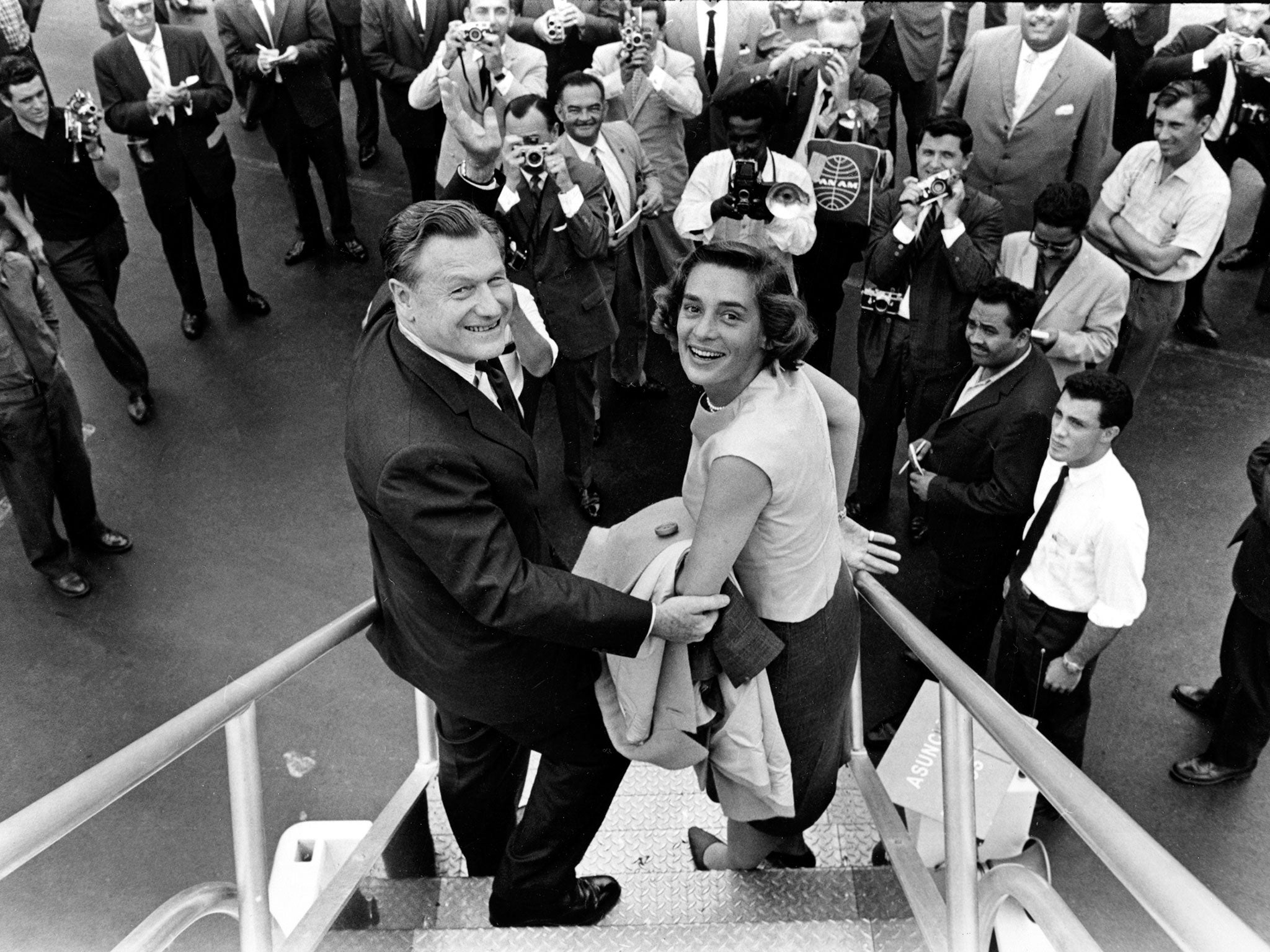Happy Rockefeller: Divorcee whose marriage to Nelson Rockefeller ended his ambition of becoming United States President
The US public was not ready for a divorcee in the Oval Office

Happy Rockefeller was few people's idea of a femme fatale, let alone a latter-day equivalent of Wallis Simpson, for whom Edward VIII gave up the British throne. Shy, private and even "artless" were adjectives used to describe her.
Yet her divorce in 1963, quickly followed by remarriage to Nelson Rockefeller, almost certainly destroyed the chances of that scion of one of America's wealthiest and most famous families of winning the White House in 1964 – the prize he yearned for above all, and to which he would never come close again.
Half a century ago, despite the loosening social mores of the 1960s, the US public was not ready for a divorcee in the Oval Office, least of all so recent a one, who like his wife had abandoned a family, surrounded by the "scandal" headlines that the Rockefeller name guaranteed. Nelson, then governor of New York, had broken up with his wife of over 30 years, who had borne him five children.
Happy, 18 years his junior, had given up not just her husband James Murphy, virologist and close friend of the Rockefeller family, but custody of their children as well. "Have we come to the point where a governor can desert his wife and children, and persuade a young woman to abandon her four children and husband?" thundered the former senator Prescott Bush (founder of a political dynasty of which Nelson Rockefeller could only dream). "Have we come to the point where one of the two great parties will confer its greatest honour on such a one? I venture to hope not."
In 1980, Americans did finally elect a candidate with divorce on his resumé, in the person of Ronald Reagan, but the event had occurred more than 30 years earlier. In 1964 the notion was still anathema.
Rockefeller, standard-bearer of the then powerful liberal wing of the Party, had been the early Republican front-runner for the 1964 election. After his divorce and remarriage, he began to slide in the polls and lost several primaries. Eventually he withdrew from the race, and the nomination fell to the conservative Arizonan Barry Goldwater, who went on to lose to Lyndon Johnson in a landslide.
Rockefeller half-heartedly tried again in 1968, but was easily beaten by Richard Nixon. His political career seemed over when he stepped down as governor of New York in 1973 after three terms – only for Gerald Ford to pick him as vice-president in the White House game of musical chairs that followed Watergate.
Born into a wealthy Philadelphia family, Margaretta Fitler won her nickname because of her cheerful character, even though her parents divorced when she was 10. In the closing stages of the Second World War she was a driver in the Womens' Volunteer Service before marrying Murphy in 1948.
Her connection with Nelson Rockefeller began when she signed up as a volunteer on his first gubernatorial campaign in 1958, becoming the newly elected governor's private secretary the following year. During this period, almost certainly, their romance started.
Happy put up with, rather than enjoyed the politicking, and had distinctly mixed feelings about a husband in the Oval Office. "I don't know if any woman wants the man she loves to take on such awesome responsibilities," she once said. But whatever her own doubts and the public misgivings about her, she made a fine candidate's wife on the campaign trail in 1964 – even as her pregnancy with Nelson Aldrich Jr, the first of her two sons by her second marriage, became more obvious.
Nelson Rockefeller died two years after leaving the vice-presidency in January 1977. Happy outlived him by 36 years. Widowhood "was a hard transition, and the hardest thing was facing the void left by a very vital human being," she told The Chicago Tribune. "He said that I made him strong. I think he made me strong."
RUPERT CORNWELL
Margaretta Large "Happy" Rockefeller, Second Lady of the United States: born Bryn Mawr, Pennsylvania 9 June 1926; married 1948 James Murphy (divorced 1963; three daughters, one son), 1963 Nelson Rockefeller (two sons); Second Lady of the United States 1974-1977; died Tarrytown, New York 19 May 2015.
Subscribe to Independent Premium to bookmark this article
Want to bookmark your favourite articles and stories to read or reference later? Start your Independent Premium subscription today.

Join our commenting forum
Join thought-provoking conversations, follow other Independent readers and see their replies